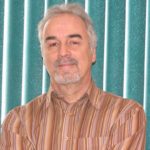A Paulicyworks Milestone 2020: Canada Research Chairs at 20
One of the most impactful programs created for the advancement of research in this country is arguably that of the Canada Research Chairs (originally labelled the 21st Century Chairs for Research Excellence).
The context for the program was clear-- Canada was losing some of its brightest minds to other countries---especially to the US. This brain drain had to be stemmed. The new program had to be bold. It would help Canada become a world-leading knowledge-based society by assisting Canadian universities and affiliated research institutes and hospitals retain and attract the world’s best researchers. The program would also help strengthen the training of highly-qualified personnel and would also improve universities’ capacity for generating and applying new knowledge.
While the programme design was somewhat complex given Canada’s knowledge landscape at the time, it was an innovative experiment that focused on excellence delivered through the granting councils with features to assist social sciences and humanities and smaller universities. A peer review of researchers nominated by an institution would confirm one of two types of chairs-- Tier 1 seven-year renewable chairs for experienced researchers and Tier 2 five-year chairs for researchers acknowledged by their peers as having the potential to lead in their fields.
On 15 December 2000, Prime Minister Jean Chrétien announced the first 195 recipients of the total target of 2000 chairholders by 2004-2005. $900M had been allocated for the program over the five-year period. The PM also noted that $250M was allocated to CFI for leading- edge equipment needed by the research chairs.
Among the first recipients were :
W. Ford Doolittle, genetics
Victoria Kaspi, astronomy and astrophysics
John P Smol, evolution and ecology
Shana Poplack, linguistics
Michael Hayden, genetics
Frank Plummer, infectious and parasitic diseases
Monica Boyd, sociology
Eric Helleiner, political science
Gilles Brassard, information technology
Bartha Knoppers, law
Mona Nemer, molecular biology
Yoshua Bengio, artificial intelligence
Daniel Weinstock, philosophy
Jacques Simard, genetics
Michael Rudnicki, molecular biology
Tak Mak, cell biology
Edward Sargent, electrical engineering
Molly Shoichet, biomedical engineering
By Paul Dufour
Events For Leaders in
Science, Tech, Innovation, and Policy
Discuss and learn from those in the know at our virtual and in-person events.
See Upcoming Events
You have 0 free articles remaining.
Don't miss out - start your free trial today.
Start your FREE trial Already a member? Log in
By using this website, you agree to our use of cookies. We use cookies to provide you with a great experience and to help our website run effectively in accordance with our Privacy Policy and Terms of Service.





